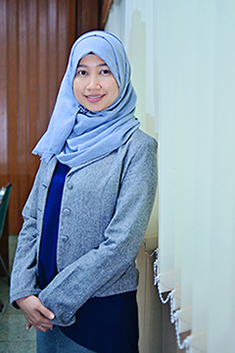Publication Ethics
PUBLICATION ETHICS AND MALPRACTICE STATEMENT
In dealing with all aspects of publication ethics, including how to handle cases of research and publication misconduct, Jurnal Farmasi dan Ilmu Kefarmasian Indonesia (JFIKI) adheres to guidelines from the Committee on Publication Ethics (COPE) and the International Committee for Medical Journal Editors (ICMJE).
All studies must be conducted ethically and per local regulations and standards to be scrutinised and approved. The work described in your article must have been carried out in accordance with the Code of Ethics of the World Medical Association Code of Ethics (Declaration of Helsinki) for human experiments and EC Directive 86/609/EEC for animal experiments.
JFIKI adapts COPE to meet a high-quality, ethical standard for publishers, editors, authors, and reviewers. As a critical issue, publication ethics must be clearly explained in order to improve the quality of research worldwide. This section describes the standard for editors, authors, and reviewers. Furthermore, the publisher has no right to interfere with the integrity of the contents and can only provide support for timely publication.
Allegation of Research Misconduct
Fabrication, falsification, citation manipulation, and plagiarism are examples of research misconduct that can occur during the production, performance, review, or reporting of research and the writing of articles. Editors must ensure the accuracy and integrity of the scientific record, especially when previously published papers are involved in such irregularities.
To address misconduct suspicions fairly, editors and editorial boards adhere to COPE best practises, which include an investigation of allegations made by individuals who do not have relevant conflicts of interest. If there is suspicion of misconduct, the corresponding author is contacted for a detailed response, and additional review and participation of experts, such as statistical reviewers, may be sought.
When there is enough evidence of misconduct, submitted manuscripts are rejected, and published articles may be retracted with a link to the original article. Clarifications, additional analyses, or both, published as letters to the editor, often accompanied by a correction notice and correction to the published article, can suffice in cases where misconduct is unlikely.
JFIKI is expected to investigate allegations of scientific misconduct thoroughly. It is the authors', journals', and institutions' critical responsibility to ensure the accuracy of the scientific record. JFIKI will continue to carry out its duties by appropriately responding to concerns about scientific misconduct and taking necessary actions, such as corrections, retractions with replacement, and retractions, to ensure the validity and integrity of the scientific record.
Post-Publication Discussions and Corrections
JFIKI welcomes post-publication discussions and corrections to published articles from readers. If readers want to contribute comments and corrections, they can email the Editor in Chief and explain their thoughts. If the Editor in Chief accepts the discussions and corrections, they will be published as a Letter to the editor in the next issue. The original article's authors may respond to the comments and corrections by sending their response to the Editor in Chief, who may publish it as a Reply to the Letter to the editor.
Article Withdrawal Policy
According to a general principle of scholarly communication, the editor of a learned journal is solely and independently responsible for deciding which articles submitted to the journal will be published. In making this decision, the editor is guided by the editorial board's policies and constrained by current legal requirements regarding libel, copyright infringement, and plagiarism. As a result of this principle, the scholarly archive is important as a permanent, historical record of scholarly transactions. Articles that have been published must be kept as accurate and unaltered as possible. However, very rarely, circumstances may arise when an article is published and then retracted or removed. Such actions should not be taken lightly and should only carried out in exceptional circumstances. In all cases, our official archives at the National Library of the Netherlands will keep all article versions, including those that have been retracted or removed.
This policy was created to address these concerns while also considering current best practices in the scholarly and library communities. We will revisit this issue as standards evolve and change, and we welcome input from the scholarly and library communities. International standards are required for these issues, and we will actively lobby various information bodies to establish international standards and best practices that the publishing and information industries can use. See also the National Library of Medicine's retractions policy and the International Committee of Medical Journal Editors (ICMJE) corrections and retractions recommendations.
Article Withdrawal
Articles in Press are only used for early versions of articles that may contain errors or have been accidentally submitted twice. Occasionally, but infrequently, the articles may violate professional ethical codes, such as multiple submissions, false claims of authorship, plagiarism, fraudulent data use, or the like. Articles in Press (articles accepted for publication but not yet formally published and will not yet have the complete volume/issue/page information) that contain errors or are discovered to be accidental duplicates of previously published articles (s), or are determined by the editors to violate our journal publishing ethics guidelines (such as multiple submission, bogus claims of authorship, plagiarism, fraudulent use of data, or the libel of others). Withdrawn means that the article content (HTML and PDF) is removed and replaced with an HTML page and PDF stating that the article has been withdrawn in accordance with the MEV Policy on Article in Press Withdrawal, along with a link to the most recent policy document.
Article Retraction
Multiple submissions, false claims of authorship, plagiarism, fraudulent use of data, and other violations of professional ethical codes. A retraction is occasionally used to correct errors in submission or publication. The retraction of an article by its authors or the editor on the advice of members of the scholarly community has long been an occurrence in the academic world. Several library and educational bodies have developed standards for dealing with retractions, and MEV has adopted this best practice for article retraction:
- A retraction note titled "Retraction: [article title]" signed by the authors and/or the editor is published and listed in the contents list of a subsequent journal issue.
- The electronic version includes a link to the original article.
- The retraction notice is displayed before the online article. The link resolves to this screen, and the reader can proceed to the article.
- The original article is kept entirely, except for a watermark on each page indicating it has been "retracted."
- The HTML version of the document is no longer available.
- The retraction mechanism adheres to the Committee on Publication Ethics (COPE) Retraction Guidelines, found at https://publicationethics.org/files/retraction-guidelines-cope.pdf.
For Editors
- An editor should edit every article published on JFIKI.
- Editors should assist authors to follow the author instructions that we adopt from ICMJE.
- In making the final decision, the editors may consult with other editors or reviewers.
- An editor must evaluate each manuscript objectively for publication, judging each on its quality without regard for the authors' nationality, ethnicity, political beliefs, race, religion, gender, seniority, or institutional affiliation of the authors. When there is a potential conflict of interest, he/she should decline his/her assignment.
- Editors must ensure that the document sent to the reviewer does not contain the author's information and vice versa.
- Unless they contain offensive or libellous remarks, editors' decisions should be communicated to authors along with reviewers' comments.
- Editors should respect the author's requests that an individual not review the submission if they are well-reasoned and practical.
- The confidentiality of the submitted manuscript should be guaranteed by the Editors and all staff.
- COPE flowcharts will guide editors if there is suspected misconduct or disputed authorship.
For Reviewers
- Reviewers must provide feedback on ethical issues and potential research and publication misconduct.
- Reviewers will complete the work in a timely manner and should notify the editor if they are unable to do so.
- Reviewers must maintain the manuscript's confidentiality.
- Reviewers should decline to review manuscripts in which they have a potential conflict of interest with one or more of the authors.
For Authors
- Author(s) confirm that the material has not been previously published and that they have not transferred any rights to the article to anyone else.
- Author(s) must ensure that their work is original and that they have properly cited others' work in accordance with the format of the references.
- Author(s) should avoid plagiarism and self-plagiarism.
- The publication of 'Salami' is strictly prohibited in JFIKI.
- Author(s) should ensure they follow the authorship criteria from ICMJE and explained in JFIKI author instructions.
- The author(s) have not suggested any personal information that could reveal the patient's identity in any description, photograph or pedigree. When pictures of the patient were required for scientific purposes, the author(s) must have written consent.
- In the case of human experimentation, the authors have certified that the research process adheres to the Helsinki Declaration's ethical standards, as well as domestic and international committees that oversee human experiments. If there are any doubts about whether the research was conducted in accordance with the declaration, the authors should explain why. In the case of animal experiments, the authors have certified that they followed all domestic and foreign guidelines for animal experiments in a laboratory.
- If there are suspicions of data falsification or fabrication, the author(s) should provide the editor with the data and details of the work.
- Authors of the journal should clarify everything that may cause a conflict of interest, such as work, research expenses, consultant expenses, and intellectual property on the document of ICMJE form disclosure.


.jpg)














